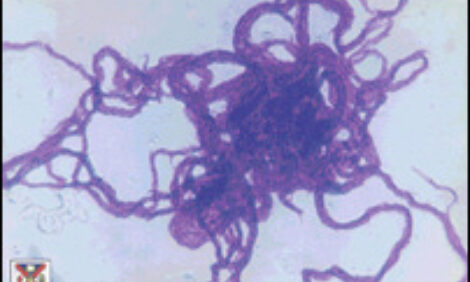



Investment Needed to Compete on Global Dairy Market
ANALYSIS - Capacity in the dairy processing sector and investment to manufacture new and more products could be a limiting factor in the competitiveness and expansion of the UK dairy market.The market at present has great potential for growth and the catalyst will be a change in demand, senior analyst at Dairy Co Patty Clayton told a seminar at the Livestock Event in Birmingham.
At present the UK uses between 13 billion and 14 billion litres of milk a year, with the products event split between fresh milk and manufactured products.
And she said that while the market in the UK is stable at present, there is a chance for the country to increase production.
The amount of fresh milk that is placed on the market at present is expected to change as the population numbers and age changes, while incomes for people living in countries such as the UK will not be a determining factor in the changes of preference for milk products.
However, in emerging nations where incomes are rising as well as populations growing, incomes will become a determining factor in the types of products that are consumed.
All these factors, together with price and other competing food products will have an effect on both domestic and export markets.
In the developed countries dairy products will rely more heavily on factors of lifestyle and perceptions of health, while in emerging nations rising incomes will be a major determining factor in the kinds of dairy products that are purchased.
Ms Clayton said that the major consumers of liquid milk at present in the UK are the under 14 year old and the over 65s. There is a growth in production of about 1.2 per cent a year but the middle section of society needs to be attracted to milk to help the market grow and to achieve this the image of milk as a healthy product and the lifestyle image of dairy products needs to be enhanced.
The potential in the UK to change and grow the domestic market depends on turning around a trade deficit in dairy products. At present the UK imports more than it exports and the deficit is growing.
“The growth in imports means that there is a demand for more dairy products and there is an opportunity for growth in the domestic market by taking from the imports,” Ms Clayton said.
She added that the opportunity to grow exports will depend largely on the investment in the processing sector which will drive the kind of products that are manufactured.
“The market in the UK will have to compete to get some of the growing import demand back,” she said.
“Recent investment has largely been in the fresh milk sector, but now there is a need for more investment in the manufactured market.”
Ms Clayton said that the removal of quotas next year is not likely to have a great impact on the UK sector, because the UK has not been meeting the quota limits for some time.
However, when the quotas are removed, the ÚK is going to be expose to more competition particularly from those countries that have been breaking their quotas and have been building up their production.
“Removal of quotas is going to see these countries seek exports to grow themselves,” she said.
Ms Clayton said that the fact that cost of production now around the world is becoming closer in all countries, will mean that the UK will be able to compete on the global market if the country gets its production right and manufactures products to meet the demand.
“In order to grow, we have to stay confident, we have to invest to gain efficiencies and remain competitive on the global market,” she said.



